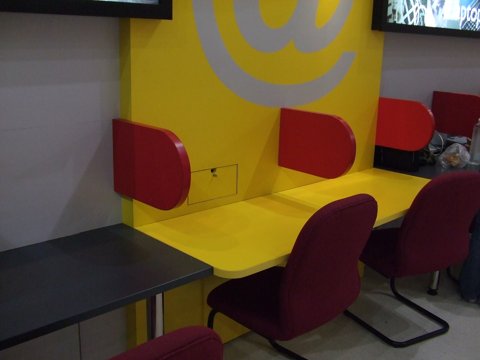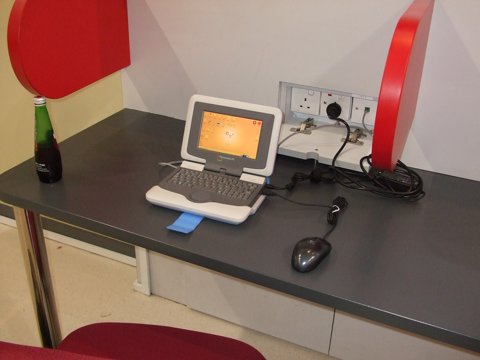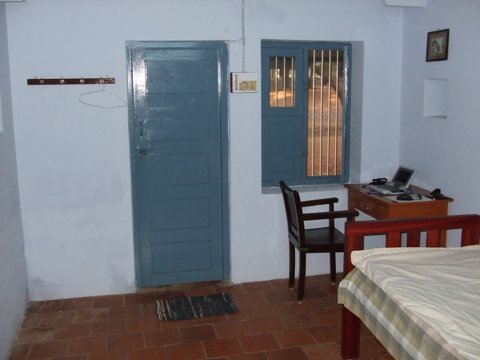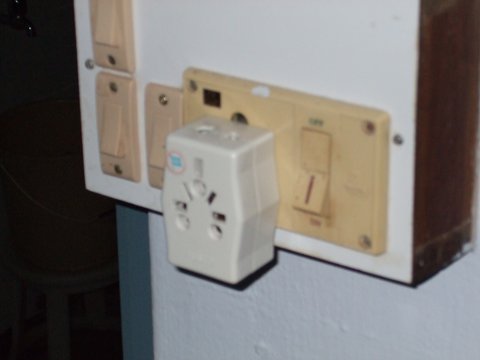Forum member ‘JustGreg’ has been doing a lot of work investigating how to get USB pen drives to boot reliably. Here are some forum threads on this topic that he has contributed:
http://murga-linux.com/puppy/viewtopic.php?t=25676
http://murga-linux.com/puppy/viewtopic.php?t=25808
http://murga-linux.com/puppy/viewtopic.php?t=25872
http://murga-linux.com/puppy/viewtopic.php?t=26591
I was reading through JustGreg’s and others posts to get up to speed on the subject, when I suddenly remembered a utility that I had looked at ages ago, and I even remembered its name: ‘makebootfat’. This is a very interesting little program: it can create a kind of universal USB pen drive that can boot from any of the BIOS settings, USB-FLOPPY, USB-HDD or USB-ZIP. It can create a drive with a partition but which also appears to the BIOS as a superfloppy for old BIOSes that can only boot with USB-FLOPPY. I tested it, so far only on a 512MB Flash drive and it worked. Note, it uses some files from Syslinux.
Anyway, I ran into a problem: my ‘probepart’ script did not recognise the filesystem of the partition, and this traces back to Jese’s ‘guess_fstype’ returning “unknown” filesystem. However, ‘fdisk -l’ and ‘disktype’ both detect the filesystem ok (it was FAT16). Perhaps the fact that it looks like both a partition and a superfloppy confuses guess_fstype, as you can see from disktype:
# disktype /dev/sda
--- /dev/sda
Block device, size 490 MiB (513802240 bytes)
DOS/MBR partition map
Partition 1: 490.0 MiB (513785856 bytes, 1003488 sectors from 32, bootable)
Type 0x06 (FAT16)
FAT16 file system (hints score 4 of 5)
Volume size 489.8 MiB (513638400 bytes, 62700 clusters of 8 KiB)
Volume name ""
FAT16 file system (hints score 3 of 5)
Volume size 489.8 MiB (513638400 bytes, 62700 clusters of 8 KiB)
Volume name
Jesse will no doubt figure out what the problem is, but in the meantime I have put a workaround into my probepart script. If guess_fstype fails, the script falls back to trying ‘fdisk -l’, which solves my immediate need to detect FAT12, FAT16 and FAT32 filesystems created by the makebootfat utility.
This fixed probepart is now in Dingo, but Puppy 3.02 developers may want it also. I have uploaded it here:
http://distro.ibiblio.org/pub/linux/distributions/puppylinux/test/puppy-3.02alpha1/





 Puppy developer news:
Puppy developer news: 








February 19th, 2008 at 4:33 pm
Sorry - posted a question about where to feedback on the Dingo alphas to a January entry by mistake somehow…
February 19th, 2008 at 4:50 pm
Scroll down this blog to where the latest Dingo alpha is announced. It will also contain links (maybe in the comments) to relevant forum threads.
February 19th, 2008 at 5:50 pm
I think this ‘feature’ of optical mice is well-known? I even had a tiny slip of paper which passes for a manual included with one mouse that I bought for a client which suggested the white paper solution you discovered.
February 19th, 2008 at 5:51 pm
Thanks, but it seems Windows or something must be magically hiding it from me somehow.
I found it with Google though
http://murga-linux.com/puppy/viewtopic.php?p=174634&sid=05bd79a5dfcb32fbdf94c395ddc055c4
February 19th, 2008 at 8:04 pm
Hi; I’ve not had trouble with colours but have had optical mouse issues where the surface has been reflective. A piece of paper or a thin book usually does the trick, as long as it doesn’t have a glossy finish. Colour sensitivity is a new one on me - I’m tempted to say “Trust Barry to find a bug in anything……”.
Nick
February 20th, 2008 at 6:45 am
Especially using the Japanese way of life for apartment space, that room is spacious.
February 20th, 2008 at 8:19 am
Hmmm …. the “room looks a bit like a jail cell” … and “doors in India have sliding bolts, both on inside and outside” … might make one worry about getting locked in!
February 20th, 2008 at 9:34 am
yeah - i read once that optical mice need some sort of patterned surface underneath them to work correctly — hence a stained wood surface will work, but a plain-colored surface requires a mousepad under it — i think just the fabric on top of them provides enough irregularity for the mice to cooperate.
February 20th, 2008 at 12:38 pm
In general, my observations line up with what Subito Piano says.
I also have a MS intellimouse explorer that doesn’t work on the mousepad that came with our computer
February 20th, 2008 at 4:08 pm
There is a big difference between an OPTICAL mouse and a LASER mouse.
Ditch the optical and get a laser.
February 27th, 2008 at 9:20 am
Barry .. did you happen to get the picture that you think I will recognize?